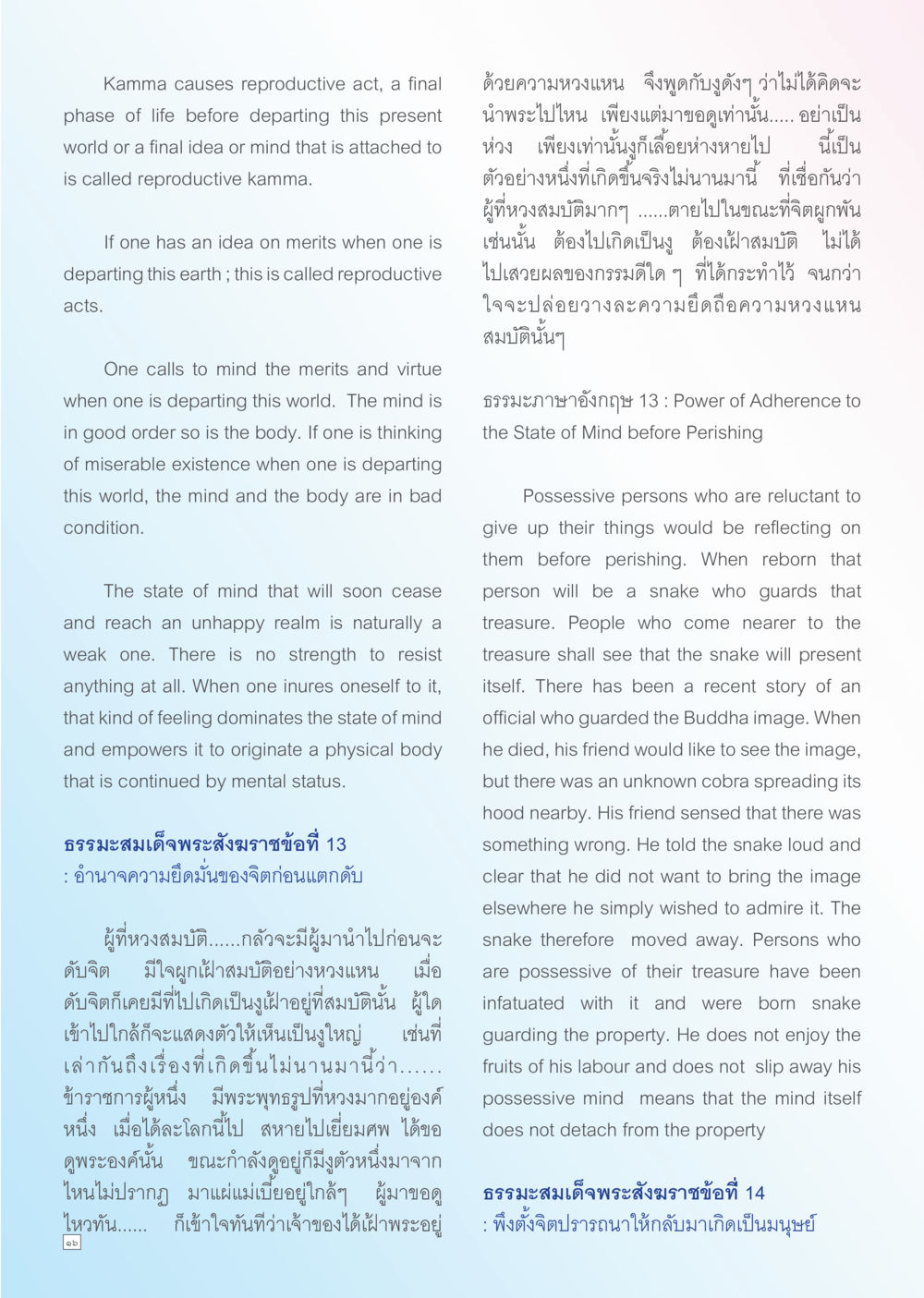Understanding Reproductive Kamma : หน้า 16/52
Dhamma TIME เดือนพฤศจิกายน พ.ศ. 2556 : หน้า 16/52 Exploration of reproductive kamma as a final mental state before death, focusing on the impact of thoughts on one's afterlife.
0 ครั้ง

สรุปเนื้อหา
Reproductive kamma represents the final thoughts and mental conditions one experiences before departing this world. A positive focus on merits and virtues leads to a better state of mind and body, while negative thoughts correlate with a stronger grip on worldly attachments. This piece elaborates on the spiritual implications of one's mental state during the final moments, including relatable anecdotes about attachments to material wealth and their consequences on the afterlife. The teachings of the Buddha emphasize the importance of a virtuous mindset for a favorable rebirth. For more insights on these teachings, visit dmc.tv.
หัวข้อประเด็น
- Reproductive Kamma
- Final Thoughts
- Impact of Mind on Rebirth
- Merits and Virtues
- Attachments and Afterlife




















































